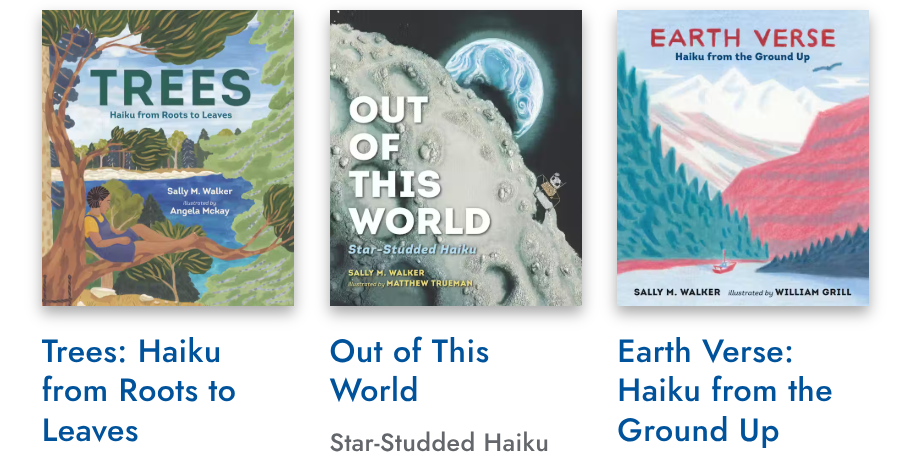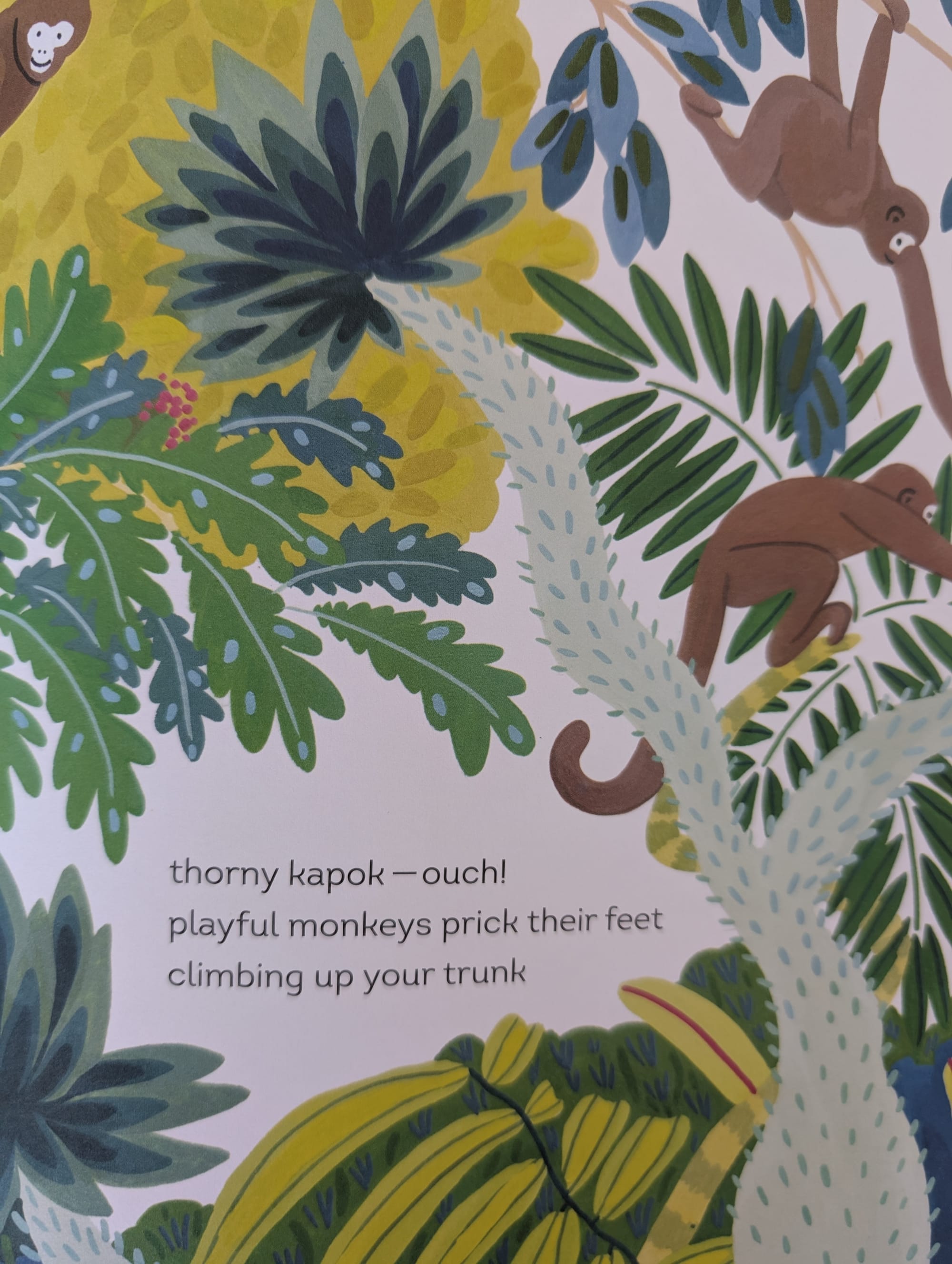Whew, this week started off so busy I didn't have time to post yet, but I've got something fun for today: it's a matched pair of haiku books for kids that fall into the "sciku" (science-haiku) genre: Earth Verse: Haiku from the Ground Up by Sally M. Walker with illustrations by William Grill and Trees: Haiku from Roots to Leaves, also by Walker with illustrations by Angela Mckay. Walker has also written Out of This World: Star-Studded Haiku, but I have not seen that one (yet!). You can find the whole series at Candlewick Press.

I really appreciate this genre of haiku books for kids, using the 5-7-5 haiku formula as a way to convey information (and likewise haiku books that pose riddles, tell jokes, etc.). Both of Walker's books are highly informational and also beautiful. I had a friend over for dinner the other night, and she was captivated by them; she remembers learning haiku as 5-7-5 back in third grade and how it was her favorite kind of poetry to write, and she was fascinated by the combination of the poems and the illustrations in Walker's books.
Also, some of the haiku really do rise to the level of poetry. I am especially haunted by this one from the geoscience book that features one of the dogs of Pompeii. There are several pages about earth history in the back of the book, and the page about volcanoes specifically mentions the dogs of Pompeii who died in the lava and thus were preserved there; the haiku verse would certainly make readers curious about the "ghost dog" and ready to learn more in the informational pages.
pyroclastic flow
rushes down Vesuvius...
a ghost dog lingers

And here's one from the tree book about monkeys in kapok trees; the illustrations for this book are especially wonderful as you can see:
thorny kapok - ouch!
playful monkeys prick their feet
climbing up your trunk

Of course, "science haiku" doesn't just have to be for children. Take a look at The Sciku Project, which describes itself as "The latest scientific discoveries in haiku form – sciku!" Do you write haiku that is inspired by the natural world and also inspired by science? Maybe you will consider contributing to their project; they have a handy submission form at the website.
For more, just Google "science haiku" – there is lots out there! I myself am traveling the world of haiku for the Zen experience, but I'm also interested in using haiku to promote "earth awareness," which means I'm interested in the science intersection too. Walker's books have definitely motivated me to keep exploring and learning more about "sciku" – and if you have suggestions or recommendations, let me know in the comments.